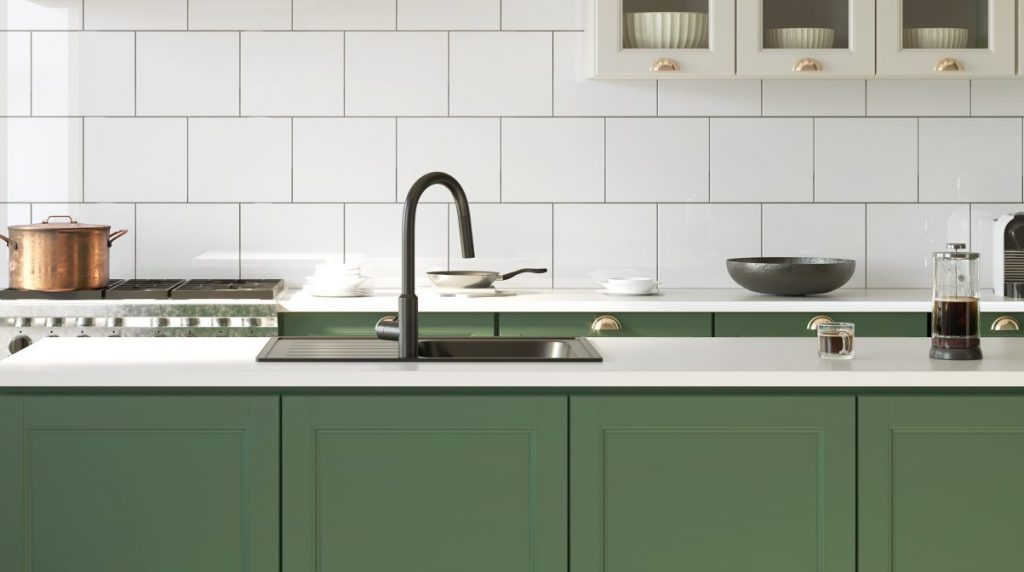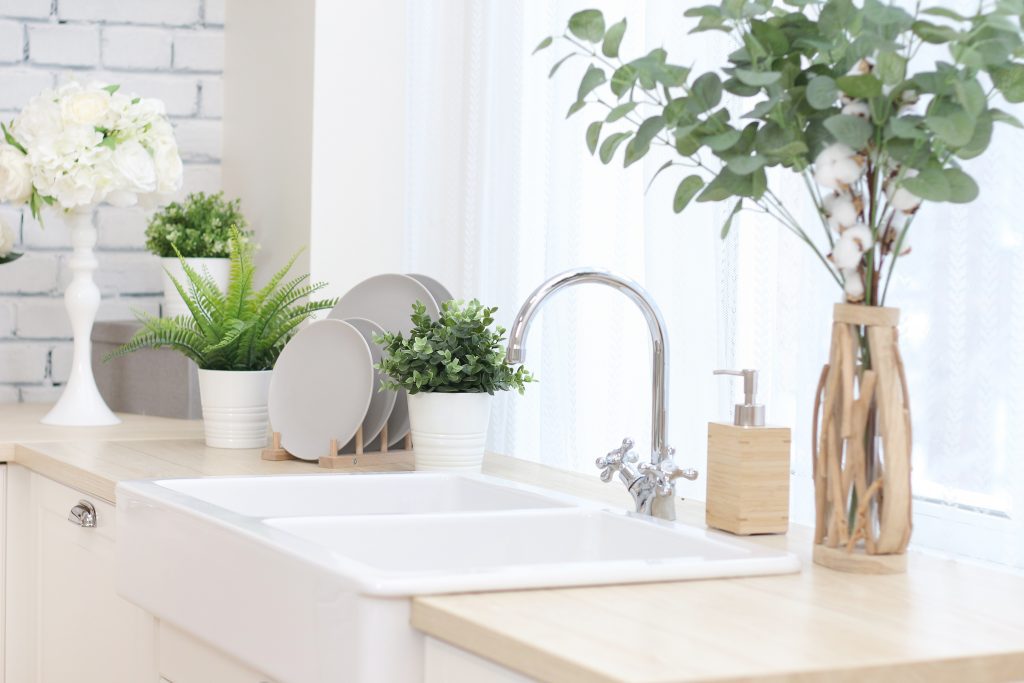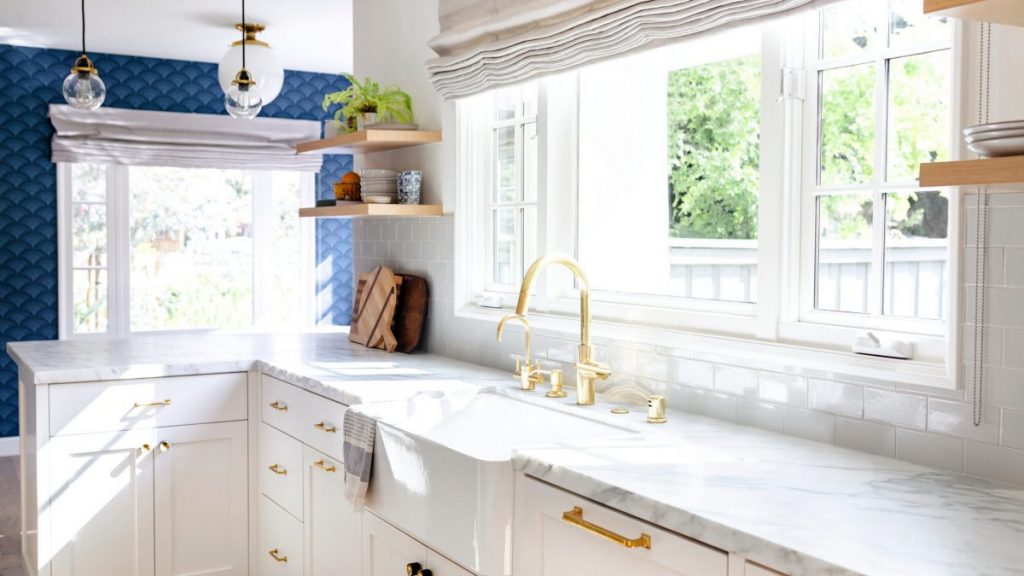If you’re contemplating a kitchen remodel, you might find yourself wondering which type of sink is better, single bowl or double bowl?
You may not have ever considered this question until you started thinking about a home renovation. The answer can be derived from contemplating three main factors: the size of your kitchen, how you’ll use your sink and your budget. If you have a large kitchen, you can definitely consider either a single or double bowl, but if you’re short on space, you might want to lean toward a single bowl.
In short, the best kitchen sink will be the one you enjoy using most, but keep reading for the various pros and cons of single and double sinks.

Pros and Cons of Double-Bowl Sinks
It’s a good idea to think about how the sink will function in your kitchen, mainly during food prep and cleanup. With a double sink, you can use one side for food prep, like washing your fruits and veggies in a colander, while setting the other section aside for stacking up dirty dishes and silverware.
Double sinks also allow you to soak dishes on one side while you wash on the other or wash in one compartment and dry inside another using a drying rack. These types of sinks also allow you to keep meat and poultry thawing on one side while not contaminating the other area (or blocking it from being used). Double sinks fit right at home in roomy kitchens that have ample countertop space.

However, there are a few cons to these workhorse sinks. For starters, double-bowl sinks take up a large amount of counter space. Splitting a single bowl in two also means neither side will be large enough to soak the longest items in your cooking arsenal. Sometimes it can feel like having two small sinks next to each other. If you’ll be cooking for a large family, this could go either way. Some people love having two separate compartments while others like it to be more all-in-one.
Double sinks also cost slightly more on average than their single bowl counterparts, mainly because of the additional material cost.
Pros and Cons of Single-Bowl Sinks
Single sinks are more common in newer homes and for good reason. They’re all-purpose; if you want to section something off and soak it, you still can. Simply add a pot inside with hot, soapy water. No matter where you put your food debris, it will go down the garbage disposal. (Double sinks only have a disposal on one side.) Plus, you save that coveted counter space, which is especially important in small kitchens

The downside to single-bowl sinks is that you can’t separate thawing meat from contaminating other sides as easily, at least not without adding the extra step to place it in a dish. If you hand-wash your dishes, you won’t be able to “hide” them in your other sink portion. They’ll have to dry on the counter. If you have a stack of dirty dishes piled up at the bottom of the sink, you have a greater potential to crack whatever you’re washing because it’s more likely to bang against the mound. (Even more so for porcelain sinks, unfortunately.)
The good news is that both bowl types are still in style and aren’t going to be considered outdated anytime soon, if ever. In the end, there isn’t a right or wrong answer when it comes to which sink is better. It’s more about what’s right for your family, your needs and what pleases your eye.
This story originally appeared on Don't Waste Your Money. Checkout Don't Waste Your Money for product reviews and other great ideas to save and make money.


